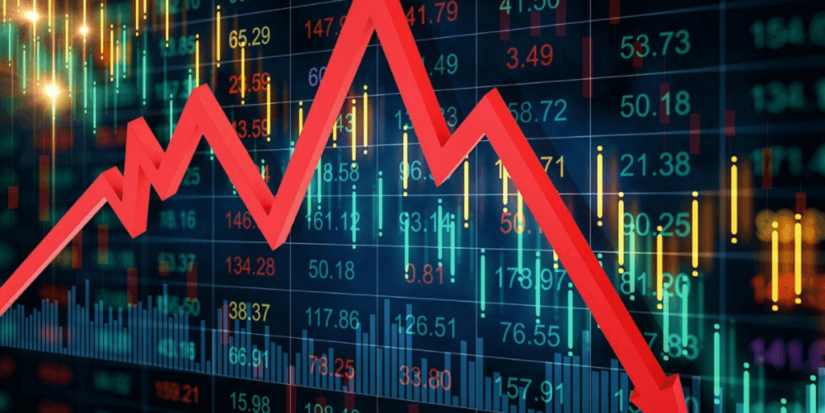Best Global Financial Stocks 2023 – that will be the topic of today’s article.
If you are looking to invest as an expat or high-net-worth individual, which is what I specialize in, you can email me (advice@adamfayed.com) or WhatsApp (+44-7393-450-837).
Introduction
Today, I will be talking about some of the best global financial stocks that are worth adding to your portfolio.
Before we get to the part where we discuss the best financial stocks, I will shed some light on the general information related to financial stocks.
This would help you get a better understanding of these stocks and know whether or not they are suitable for your goals.
Kindly note that all of the information provided in this article is for educational purposes and should not be considered actual advice.
I neither endorse any of the stocks mentioned in this article nor am I against them. It is wise to get suggestions from your financial planner or investment advisor before investing in them.
If you do not have access to a financial expert who can handle your investment needs, feel free to contact me.
Without any delay, let’s begin our topic for today, i.e., Best Global Financial Stocks in 2023.
What are Financial Stocks?

Financial stocks are sector-specific stocks that fall under the financial services category.
These could include:
— Banks
— Insurance companies
— Financial service providers
— Fintech companies
— Blockchain/crypto companies
In general, financial sector stocks are those belonging to companies offering services related to investment banking, consumer banking, lending, insurance, or credit cards.
These are said to be the mainstream financial sector stocks, and yet there might be others such as crypto-related companies or SPACs (Special Purpose Acquisition Companies)
Mostly, banks play a key role in this sector, yet that doesn’t mean they’re the only companies contributing to this stock market sector.
The sector is also comprised of insurance companies, investment firms, fintech companies, and other service providers.
Nonetheless, banks are said to be the base of the financial sector.
Why should you invest in financial sector stocks?
There are varied reasons why you can benefit from investing in the financial sector stocks.
#1:
To begin with, they are known to provide robust long-term performance.
Over the past three decades, the earnings from this sector alone have grown considerably faster compared to the economy as a whole.
This is the sole reason why financial companies usually pay above-average dividends and offer great price-to-earnings ratios.
It is true that past performance is never an indicator of future success, and I strongly agree with that.
At the same time, it is advantageous to look back when trying to figure out investment opportunities.
#2:
Following that, these stocks became more regulated since the Great Recession.
During the financial crisis of 2008, we have seen that the financial sector was subject to plenty of problems.
Because of that, authorities all over the world stepped in so as to deal with such problems with the help of regulation.
Nowadays, financial institutions are necessitated to implement more measures to avoid hassles.
This is done by holding higher minimum capital levels so that protection against losses can be offered.
This has reduced the risks involved with the financial sector compared to what the sector had to deal with in the past.
#3:
During times of recession, we can expect the financial sector to receive government support.
Moreover, the performance of the financial sector has an influence on the global economy.
Hence, financial institutions are bound to receive special support during a recession or any other similar financial hardships.
To state an example, governments helped various banks to deal with their financial difficulties during the Great Recession.
#4:
Financial sector stocks also benefit from the rising interest rates. As of recently, interest rates are low.
They don’t stay there forever and when they rise, companies such as banks, credit card companies, and other lenders could increase their earnings.
This is done as a result of charging higher rates in association with the increased interest rates.
On the other hand, insurance companies may also profit from their fixed-income investments when the bond interest rates increase.
#5:
With the rapidly growing innovation these days, fintech companies are making a lot of profits.
In the financial sector, fintech stocks have been performing well through innovative technologies like blockchain, mobile payment apps, and robo-advisors.
This has also become a contributing factor to the development of financial sector stocks.
What are the risks?

Now let us look at some of the drawbacks of investing in financial stocks.
#1:
During recessions, financial stocks are said to have cyclical performance. This is because financial stocks are cyclical and can be highly impacted by economic downturns.
During recessions, people and businesses have to deal with financial hardships. In such events, they don’t opt for loans on a large scale.
At the same time, investment activity decreases, and people spend less on their credit cards.
This will result in a reduction of revenue for companies, especially financial companies.
Adding to all of these, people and businesses who already took out loans might find it hard to repay those loans.
Hence, such economic events have a higher impact on financial companies, which results in the depreciation of financial stocks’ value.
#2:
Another aspect to be taken into consideration here is that loan defaults can have an effect on the balance sheets.
When people as well as businesses are not able to pay back their loans and default on their loans, lenders generally write off the debt.
This is deemed as a financial company’s traditional business model.
However, when things go south, defaults shoot up while pushing companies into bankruptcy, which applies to companies with good performance as well.
This scenario can be observed during the housing bubble which led to the 2008 financial crisis.
#3:
Fintech companies, as I said earlier, have a great influence on the financial sector, and this allows for the overall sector’s growth.
Nonetheless, when such fintech solutions offer great features, already existing financial companies might experience poor performance.
For instance, the evolution of digital banks and e-wallets has had a great positive effect on the overall financial sector.
At the same time, when people show more interest in these, the existing brick-and-mortar banks might face difficulties related to maintaining their customer base.
This is because digital banks usually offer lower fees on par with traditional banks. Therefore, the evolution of fintech companies also poses a threat to the performance of financial stocks.
#4:
As we already know, the financial sector is regulated by the governments very strictly.
If possible, we might even observe the governments increase their regulations such as asking the banks to increase their available cash reserves.
This is a good idea because it adds an extra layer of safety to the sector, yet the profits of these financial companies might be decreased.
This is because the extra money, as per government regulations, cannot be used by financial companies for lending or investing purposes.
Tips for DIY investors
Generally, it is wise to seek advice from a financial expert when you are trying to take care of your investments on your own.
However, if you like to think otherwise and still want to take things into your hands, there are a few indicators that will come in handy.
These metrics will help you in the analysis of financial stocks so that you can know when to invest and when to avoid them.
The evaluation of financial industry stocks can be done either through standard metrics or specific metrics that are customized for this sector.
What I’m about to list is advantageous during the analysis of bank and insurance company stocks.
— Return on Equity (ROE)
— Return on Assets (ROA)
— Net Interest Margin (NIM)
— Efficiency Ratio
— Net Charge-Off (NCO) Ratio
— Price-To-Book (P/B) Ratio
— Combined Ratio
— Investment Margin
With these indicators, you might be able to analyze the financial stocks and find out whether or not they’re profitable.
Best Financial Stocks in 2023
Given below are the best financial stocks, which are considered a great pick for 2023.
You should note that the stocks in this list are based on information obtained from some reliable sources on the internet.
You should not consider this as actual investment advice, and it is wise to contact your financial planner before investing.
Let us now have a look at the best financial sector stocks.
Berkshire Hathaway

Being traded as NYSE:BRK.A and NYSE:BRK.B, Berkshire Hathaway has a market cap of $679 billion.
Here BRK.A refers to the Class A shares and BRK.B refers to the Class B shares of the company.
Berkshire Hathaway’s original stock offerings are known as Class A shares, and those available for regular investors are Class B shares.
By the time of writing this article, BRK.A share is being traded at a value of $467,372.75, and by seeing this, you can understand that it is not available for regular investors.
On the other hand, BRK.B is being traded at a value of $308.24, which is affordable for small investors.
The major differences are that the Class A shares won’t have a stock split, whereas the Class B shares will have fewer voting rights.
Since late 2017, Berkshire Hathaway stock under-performed compared to the S&P 500 index. But things took a turn in 2022 when the company was able to outperform the index.
Since the beginning of 2023, the company is finding it hard to make any gains. But now, the company has reached a buy point which makes the stock worth watching.
This conglomerate owns a wide range of companies from different sectors such as real estate brokers, insurance firms, newspaper publishing, vehicle manufacturers, and so on.
Keeping all these aspects aside, this company is the brainchild of Warren Buffet, who is undoubtedly one of the best investors in this era.
If you also have a positive impression of Buffet and are convinced that the company is going to perform well, then add the stock to your watchlist.
Visa

Visa, which is famously known for the payment services it offers, is traded as NYSE:V. By the time of writing this, the share price of Visa Inc is $223.56.
With a market cap of $460.13 billion, Visa is surely one of the largest financial companies.
Since it was listed publicly, Visa has been a great stock with returns of around 1500%.
Despite the challenges faced by most companies in 2022, Visa still managed to have 8.5% year-on-year returns. At the same time, the year-on-year returns for S&P500 were -11%.
Without any doubt, Visa is not going to be affected by any of its competitors for now.
Even its closest competitor Mastercard MA falls back by 50% in terms of payments volume.
The revenue of Visa is yet another aspect to be taken into consideration as it experienced 10% in 2021 and 22% in 2022.
Unlike most other companies that were affected by the Russia-Ukraine conflict, Visa had no impact on its performance.
Finally, Visa is a great company with a robust business model and is one of the leading players in the payments sector.
The performance wasn’t even affected in 2022 when most companies had to deal with hardships.
However, the performance of V is based on the stability of an economy. Unless there is going to be a huge impact on the global economy, there are no second opinions on the performance of Visa.
No matter what, people would still be using Visa, and therefore, it is a good stock to add to your portfolio.
MasterCard Inc. (MA)

MasterCard Inc. is traded as NYSE:MA with a market cap of $345.24 billion. By the time of writing this, the share price of MasterCard Inc is around $361.13.
Most people usually pay attention to the investment recommendations made by Wall Street analysts.
In general, there is some effect on a stock’s price when the reports have been provided by these analysts.
Based on the recommendations made by 19 brokerage firms, MasterCard is said to be a strong buy as of now.
This is based on the ABR (Average Brokerage Recommendation) score of 1.26 which indicates the stock is between a strong buy and buy category.
Out of the 19 companies that suggested the recommendations, 15 companies recommended the company as a strong buy.
Analysts are highly positive about the stock’s performance, and at the same time, analysis from Zacks Consensus Estimate indicates that the stock is a sell.
For now, if you rely on wall street for recommendations, it is okay to add the stock to your portfolio. However, if you are more of a Zacks Rank, then it is a sell.
JPMorgan Chase & Co. (JPM)

With a market cap of around $417.22 billion, JPMorgan Chase & Co is traded as NYSE:JPM. The current share price of JPM by the time of writing this article was $142.24.
Based on certain analysts, JPM is said to be a buy with none of the analysts suggesting a strong sell for this stock.
The forecast for returns on equity is said to be low in 3 years and it is not suggested to generate effective returns on equity.
The earnings of this company are said to grow at a rate of 6.66% per year as per some statistics.
Even though this is better compared to the risk-free savings rate, it is lower than the market average and the banking industry.
JPMorgan Chase is considered the largest bank in the United States, and it is also the largest bank in the world if we consider the market cap.
The company did take a hit during the COVID-19 pandemic yet the shares didn’t lose much value because of the robust balance sheet and revenue.
Bank of America

Bank of America has a market cap of $283.89 billion and is traded as NYSE:BAC. By the time of writing this, the share price of BAC is around $35.35.
In 2021, the revenue and earnings of the Bank of America were great. This was due to the loan growth and the solid income from the investment banking wing.
At that time, the company was also able to grow its cash reserves making it stand in a strong financial position.
In the second half of 2022, Bank of America was among the best-performing stocks with returns of 6.4% compared with the previous two quarters.
The price-to-earnings ratio of BAC is 9.5 and the dividend yield is 2.6% with a 26.9% payout ratio.
In 2023, analysts claim that Bank of America is said to show stable performance with a rise in 2024 or after that.
It may not be in the strong buy or buy categories as of now, but it is definitely worth adding this stock to your watchlist.
Wells Fargo

Wells Fargo is traded as NYSE:WFC and has a market cap of 180.96 billion. By the time of writing this, WFC has a share price of $47.49.
Based on the analysis report from Wall Street Zen, It stands in the category between strong buy and buy.
Another major aspect to be taken into consideration is that none of the wall street analysts are suggesting a sell or strong sell.
It is estimated to generate higher returns on equity even compared to that of the banking industry in the US.
Earnings are anticipated to grow at a significant rate of 36.42% per year, which is quite impressive.
This is impressive because the US Bank’s Diversified Industry’s growth is 17.6% and the risk-free savings rate is 3.6%. WFC is expected to beat them both.
The revenues are also estimated to grow at a rate of 7.87%, which is higher than that of the US banking industry but lower than the US market average.
It is the third-largest bank in the United States by market cap with $180.96 billion.
Based on what the analysts have to say, Wells Fargo is set to perform well in the year 2023, and therefore, it is a good choice for your portfolio.
Morgan Stanley

Morgan Stanley has a market cap of $166.68 billion and is traded as NYSE:MS. By the time of writing this article, the share price of MS is around $99.51.
The is one of the few financial stocks that has received a strong buy recommendation from analysts.
This stock has received 38 buy ratings, 19 hold ratings, and only one sell rating based on 58 analysts’ ratings based on Business Insider.
According to 18 analyst reports from Wall Street Zen, 4 suggest strong buy, 4 suggest buy, 9 suggest hold, and only one suggests sell.
Morgan Stanley is expected to have a growth rate of 9.6% per year, which is more than the risk-free average savings rate of 3.8%.
It happens to be the largest investment bank in the world in terms of market cap.
Citigroup Inc.

Citigroup has a market cap of $99.59 billion and is traded as NYSE:C. By the time of writing this, C has a share price of $51.42.
Citigroup is said to be the largest financial services company in the world.
According to Business Insider, Citigroup is said to have received a rating of buy. Out of ratings from 54 analysts, only 6 analysts suggested a sell rating and 19 suggested a hold rating.
Citigroup improved in terms of personal banking as well as wealth management while taking advantage of higher interest rates.
From its institutional clients, Citigroup has also experienced revenue gains. Based on the analysts’ recommendations and the positive outlook, Citigroup is a stock that is worth adding to your watchlist.
Bottom Line
First of all, the information and statistics have been obtained from reliable sources on the internet such as Forbes, Wall Street Zen, Yahoo Finance, Fool, etc.
You should remember the fact that there is always a possibility for the analyst’s recommendations to go wrong.
Adding to that, no stock can be considered the best based on past performance alone.
Having said that, I hope that you found the information in this article helpful.
I, in no way, endorse or suggest any of these stocks or say against them. And therefore, all of this information should strictly be considered for reference.
If you want to invest in these stocks then you should do some groundwork and analysis on your own before investing.
I think it is wise to take advice from your financial advisor before making any such investment decisions.
Are you looking for someone efficient to handle your investments on your behalf? Are you a high-net-worth individual who wants the services of a wealth manager so that you can grow your wealth?
I am here to help.
I have helped several clients in achieving financial freedom, and you can be the next one.
Feel free to get in touch with me to know whether you can benefit from the top-notch financial solutions I offer.
Pained by financial indecision? Want to invest with Adam?

Adam is an internationally recognised author on financial matters with over 830million answer views on Quora, a widely sold book on Amazon, and a contributor on Forbes.



